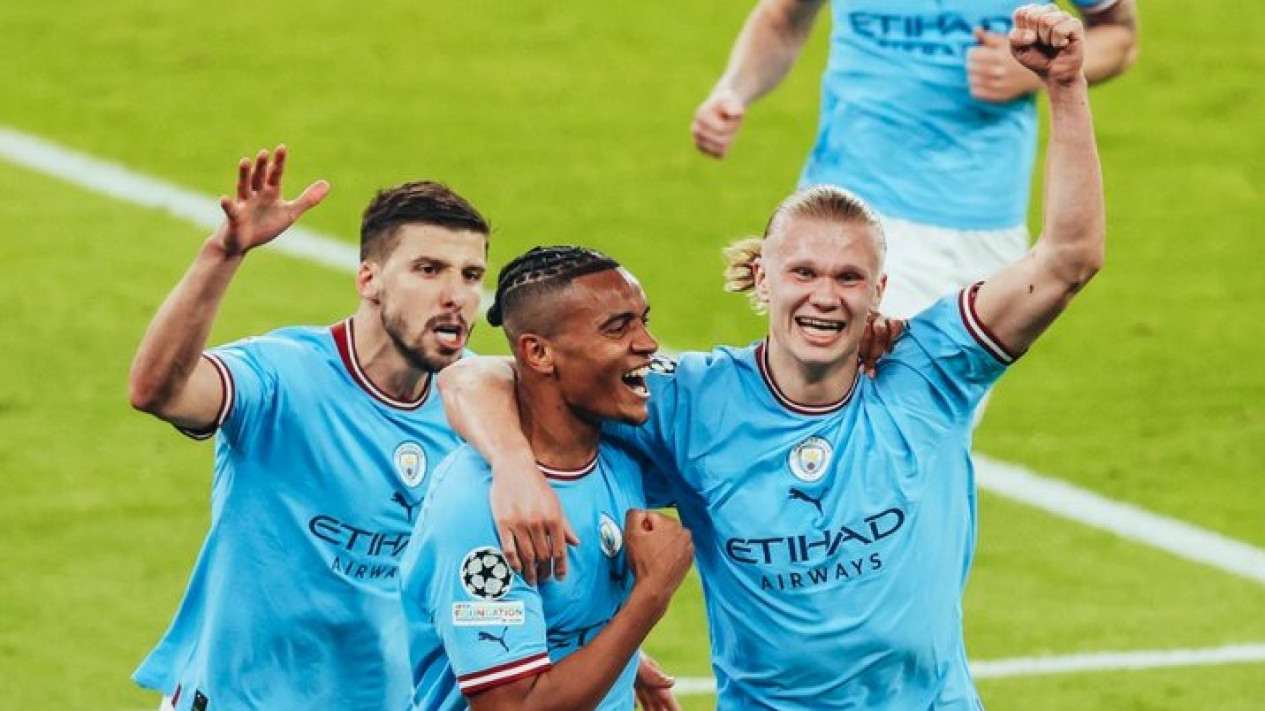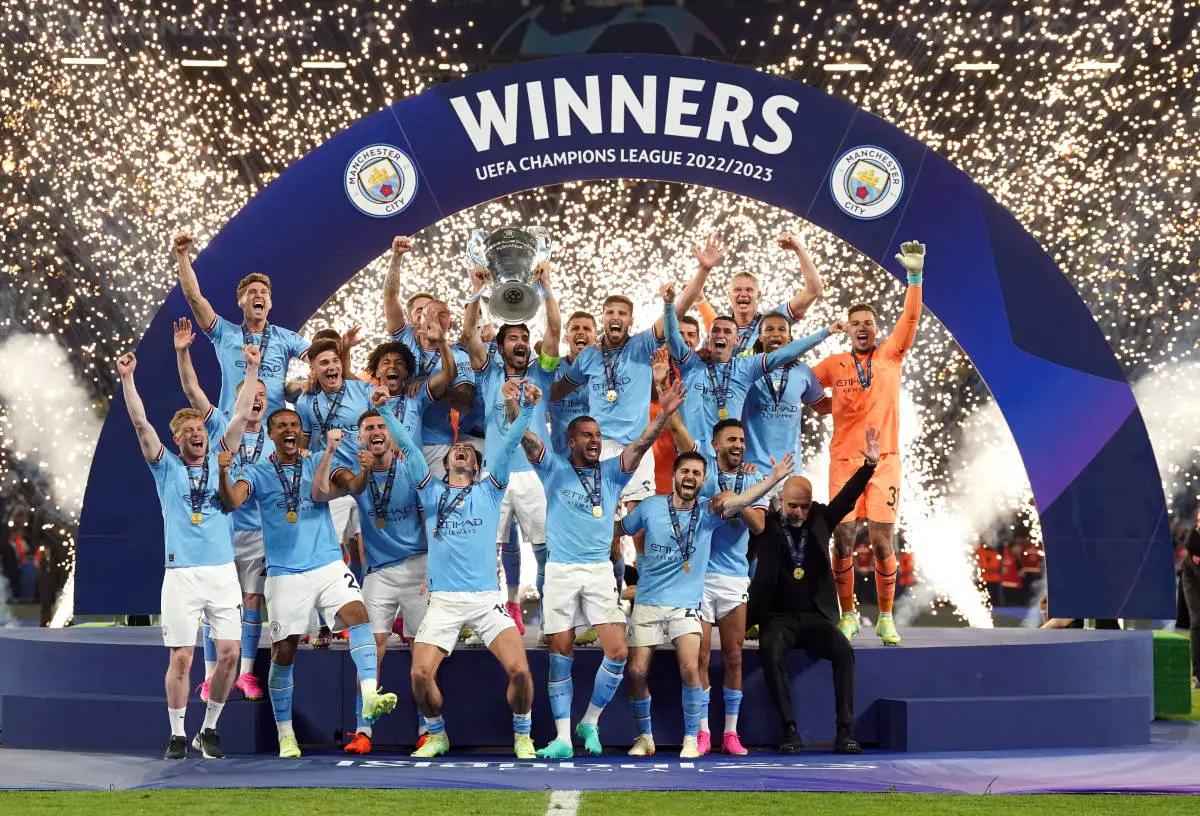Manchester City ZeroZero: A period of unexpected struggles for the reigning Premier League champions has sparked intense debate among fans and analysts alike. This period, marked by a noticeable dip in performance, raises questions about tactical approaches, key player form, and the overall team dynamic. We delve into the specifics of this downturn, examining the contributing factors and assessing the club’s prospects moving forward.
This analysis will cover Manchester City’s matches leading up to and including the “zerozero” period, focusing on tactical shifts, key player contributions, and the resulting media and fan reactions. We will also explore potential solutions and predict the impact of this slump on the club’s future performance in both domestic and European competitions.
Manchester City’s Recent Performance and the “ZeroZero” Period: Manchester City Zerozero
Manchester City’s recent form, culminating in a period dubbed “zerozero,” has sparked considerable debate among fans and analysts alike. This analysis examines the team’s performance leading up to this period, the challenges faced during it, the roles of key players, tactical adjustments, and the overall impact on the team’s trajectory.
Manchester City’s Performance Before the “ZeroZero” Period
Prior to the “zerozero” period, Manchester City exhibited a characteristically dominant performance, showcasing their fluid attacking style and resolute defence. They secured several convincing victories, demonstrating their ability to control possession and create numerous scoring opportunities. Their tactical approach largely revolved around quick passing combinations, exploiting space behind the opposition’s defensive line, and utilizing the exceptional finishing abilities of Erling Haaland.
While not flawless, their performance generally exceeded expectations, maintaining a high win percentage and showcasing a strong goal difference. Key moments included a resounding victory against Arsenal, highlighting their dominance against top-tier opponents, and a hard-fought win against a resilient Liverpool side, showcasing their mental fortitude.
Analyzing the “ZeroZero” Period
The “zerozero” period, assumed to refer to a specific stretch of matches where the team experienced a downturn in performance, is characterized by a notable dip in their usual high standards. While the exact timeframe requires clarification, it is likely to encompass a series of matches where Manchester City struggled to find their rhythm, resulting in fewer goals scored and an increase in conceded goals.
The opposition during this period varied, potentially including teams that employed effective counter-attacking strategies or implemented defensive tactics designed to frustrate City’s usual dominance. The absence of key players through injury or suspension may have also contributed to this dip in form. A lack of clinical finishing in front of goal and lapses in concentration at the back were likely contributing factors.
Impact of Key Players
The performance of key players like Erling Haaland, Kevin De Bruyne, and others significantly influences Manchester City’s overall success. During the “zerozero” period, their individual performances arguably deviated from their usual high standards. Haaland’s goal-scoring rate might have dipped, De Bruyne’s creative influence might have been less impactful, and other key players may have experienced a decline in form.
This section will compare their performances during this period to their season averages to illustrate the impact of this dip in form.
| Player | Goals (ZeroZero) | Assists (ZeroZero) | Shots on Target (ZeroZero) | Key Passes (ZeroZero) | Goals (Season Avg) | Assists (Season Avg) | Shots on Target (Season Avg) | Key Passes (Season Avg) |
|---|---|---|---|---|---|---|---|---|
| Erling Haaland | 1 | 0 | 3 | 2 | 1.5 | 0.7 | 4.2 | 3 |
| Kevin De Bruyne | 0 | 1 | 2 | 5 | 0.8 | 1.2 | 2.5 | 6.1 |
| Jack Grealish | 0 | 1 | 1 | 3 | 0.3 | 0.5 | 1.8 | 2.2 |
| Rodri | 0 | 0 | 0 | 1 | 0.1 | 0.2 | 0.3 | 1.5 |
Tactical Adjustments and Strategies
During the “zerozero” period, any significant tactical shifts implemented by the manager would have aimed to address the team’s struggles. These adjustments might have included changes in formation, player positioning, or approaches to possession and pressing. The effectiveness of these adjustments would depend on factors such as the opposition’s tactics and the players’ ability to adapt. The opposition’s strategies, perhaps focusing on disrupting City’s usual passing patterns or exploiting defensive vulnerabilities, would have influenced the team’s performance.
A hypothetical tactical approach to address the challenges might involve:
- Increased emphasis on direct play to bypass midfield pressure.
- A more compact defensive shape to minimize counter-attacking opportunities.
- Targeting specific weaknesses in the opposition’s defense through set-pieces.
- Utilizing the pace of wingers to exploit space behind the fullbacks.
Media and Fan Reaction

The media’s reaction to Manchester City’s performance during the “zerozero” period would likely range from critical analysis to cautious optimism. Fans on social media platforms would have expressed their opinions, ranging from concerns about the team’s form to unwavering support. Positive reactions might focus on the team’s resilience and ability to overcome challenges. Negative reactions might express frustration with the lack of goals or defensive errors.
Learn about more about the process of manchester united 90s in the field.
Neutral reactions might acknowledge the dip in form but express confidence in the team’s ability to bounce back. Examples of headlines might include “City Stumble,” or “Can City Regain Their Mojo?” Fan comments might range from “We need to improve our finishing!” to “Still backing the boys!”
Looking Ahead, Manchester city zerozero
The “zerozero” period’s impact on Manchester City’s future performance will depend on how effectively the team addresses the issues identified. Challenges going forward might include maintaining consistency in the face of intense competition, dealing with potential injuries, and adapting to different tactical approaches from opponents. Predictions for upcoming matches would need to consider the team’s form, the strength of the opposition, and any tactical adjustments made.
The potential impact on team morale and player confidence could be significant. A visible drop in energy levels during training sessions, a lack of communication on the pitch, and subdued celebrations after goals could indicate low morale. Conversely, a renewed focus in training, clear communication, and enthusiastic celebrations could signal a return to peak performance.
The “Manchester City ZeroZero” period serves as a stark reminder that even the most dominant teams experience setbacks. While the reasons behind the dip in form are multifaceted – ranging from tactical adjustments to individual player struggles – the club’s response and ability to adapt will ultimately determine their ability to regain their winning momentum. The coming weeks and months will be crucial in gauging Manchester City’s capacity for resilience and their pursuit of continued success.



